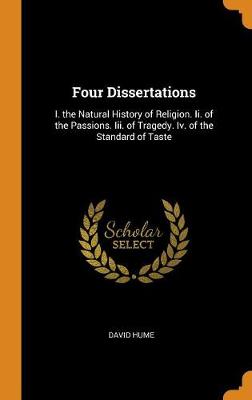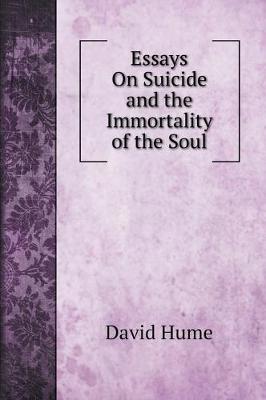Key Texts S.
2 total works
Although these essays are usually read apart from their original context, Hume clearly intended the four works - "The Natural History of Religion", "A Dissertation on the Passions", "Of Tragedy" and "Of the Standard of Taste" - to stand togeher as a unified whole, showcasing his psychology of the passions and demonstrating its applications to both religion and aesthetics. In this volume Hume uses theories originally developed in his "Treatise on Human Nature" to explain the origin of religion and also to provide answers to the question of why the tragic depiction of suffering pleases us and how one aesthetic judgement can be more valid than another. This edition also includes Hume's extended "Dedication", his endorsement of intellectual and artistic freedom. The introduction by John Immerwahr sets the essays in their historical context and traces the subtle interrelationship between the four works.
Early editions of Hume's Essays omitted these two brilliant but dangerous articles. Even though Hume continued to write in his accustomed ironic mood, and to use the arguments of the theologians in an ad hominem manner against their own positions, he must have known he was on perilous ground.
Added to these essays are 'Two Letters on Suicide' from Rousseau's Eloisa.

